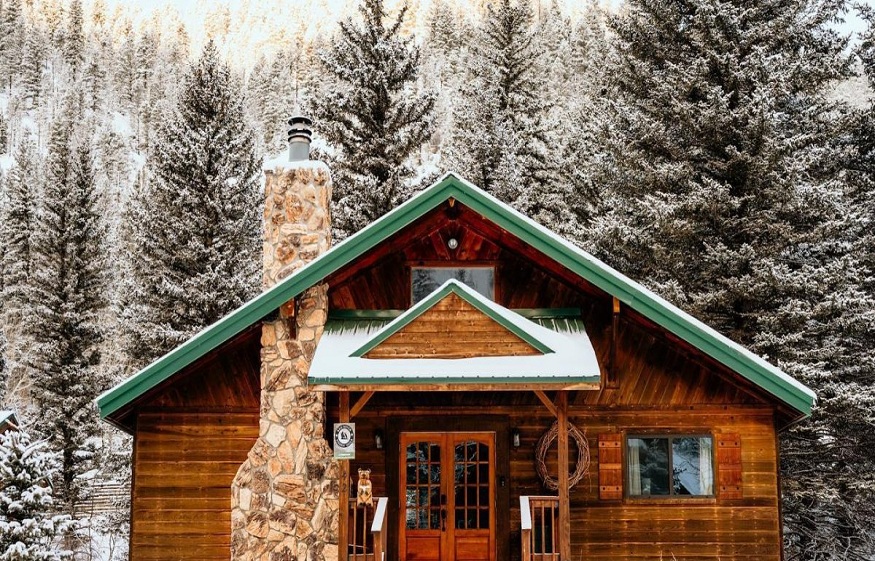Have you ever noticed how a stay in the woods seems to reset your mind? How just a few nights in a log cabin, tucked away from the chaos of everyday life, can leave you feeling lighter, calmer, and more present?
This sense of peace isn’t just a passing mood—it’s something psychologists, researchers, and wellness experts have been exploring for years. Cabin life, particularly in natural settings, offers a powerful antidote to the stress and overstimulation of modern living. It’s no wonder that more and more people across the UK are embracing the log cabin lifestyle, whether as a weekend retreat or a long-term escape.
Let’s explore why the simple act of spending time in the woods—especially in a log cabin—has such a profound effect on our mental wellbeing.
1. Nature Calms the Nervous System
At the heart of cabin life is nature, and its psychological benefits are well-documented. Studies have shown that spending time in green spaces lowers cortisol levels (the hormone linked to stress), reduces blood pressure, and improves mood.
Being surrounded by trees, listening to birdsong, and breathing in fresh air all stimulate the parasympathetic nervous system—what’s known as the “rest and digest” state. This is the opposite of the fight-or-flight mode many of us live in daily.
Log cabins offer an ideal setting for this kind of natural immersion. With wooden interiors, outdoor decks, and forest surroundings, they create a gentle transition from the built environment back into nature.
2. Cabin Life Slows Us Down
Life in the UK can feel relentlessly fast—especially in cities. We’re always connected, always reachable, and always busy. Cabin life presents an opportunity to disconnect, even temporarily.
The absence of constant notifications, traffic noise, and social pressures allows us to slow down. Mornings can be spent sipping tea while watching the mist lift over the hills. Afternoons might be filled with walks, reading, or cooking a meal from scratch.
This slower pace helps reset our internal rhythms and brings clarity to thoughts that are often drowned out by daily distractions.
3. The Comfort of Simplicity
Log cabins are typically simple in design. There are fewer rooms, fewer possessions, and fewer distractions. This simplicity itself is deeply comforting. Psychologists call this “environmental minimalism”—when we reduce the number of stimuli around us, our minds become less cluttered as well.
Cabin life encourages mindfulness. Tasks like chopping wood, lighting a fire, or preparing food by hand become small rituals. They ground us in the present moment and give us a sense of purpose.
For many people in the UK, especially those living in flats or urban areas, the opportunity to simplify—even just for a weekend—is incredibly refreshing.
4. Solitude Without Isolation
There’s a big difference between being alone and being lonely. Time spent alone in nature often feels restorative rather than isolating. In fact, many mental health professionals recommend regular doses of solitude to boost emotional resilience and self-awareness.
Log cabins provide a perfect balance: they offer solitude without complete disconnection. You can retreat into your own space while still feeling safe, grounded, and connected to the natural world around you.
This quiet time allows for reflection, creativity, and rest—things we often don’t prioritise in our everyday routines.
5. Reconnecting With What Matters
Perhaps the most powerful psychological effect of cabin life is the way it helps us reconnect—with nature, with ourselves, and with the people closest to us.
Without the constant buzz of technology, we talk more, listen better, and notice things we’d usually overlook. Families and couples often find that quality time in a log cabin brings them closer. Even solo travellers report feeling more in touch with their own thoughts and goals.
In a world filled with noise, complexity, and speed, the cabin offers clarity. It reminds us of what we truly value: peace, presence, and connection.
It’s easy to think of log cabins as just pretty places to stay—but the psychological benefits go far deeper. In the UK and beyond, more people are turning to cabin life as a way to step back, breathe deeply, and realign with what matters most.
Whether you’re considering a weekend in the woods, building your own cabin retreat, or simply dreaming of one, know this: the craving you feel isn’t just about scenery—it’s about something much more meaningful. It’s your mind and body asking for stillness, simplicity, and space.
And there’s no better place to find it than in a quiet log cabin, surrounded by trees, and guided by the rhythms of the natural world.





